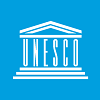
Individual Consultant on Education Sector Responses to Early and Unintended Pregnancy in WCA
UNICEFDakar, SénégalIndividual Consultant on Education Sector Responses to Early and Unintended Pregnancy in WCA.
Overview
- Parent Sector : Field Office
- Duty Station : Dakar
- Job Family : Education
- Type of contract : Non Staff
- Duration of contract : From 1 to 6 months
- Recruitment open to : External candidates
- Application Deadline (Midnight Duty Station Time) : 11 July 2025
UNESCO Core Values : Commitment to the Organization, Integrity, Respect for Diversity, Professionalism
Overview of the functions of the post
Adolescent pregnancy remains a pressing challenge in West and Central Africa (WCA), driven by a complex interplay of social, economic, and cultural factors. The region has the highest proportion of adolescents giving birth before the age of 18 (33%), and 3.5% of girls give birth before the age of 15. Seven of the ten countries with the highest adolescent pregnancy rates globally are located in WCA. These early and unintended pregnancies (EUP) often result in adverse health outcomes, including pregnancy-related complications, elevated maternal mortality risks, and mental health issues exacerbated by stigma and social exclusion.
The situation is further compounded by the widespread lack of comprehensive sexuality education (CSE) and limited access to sexual and reproductive health (SRH) services. Many adolescent mothers face significant discrimination, lack of support from families and communities, and substantial barriers to re-entering the education system. The interruption of their education greatly diminishes their future employment prospects, reinforcing cycles of poverty and gender inequality.
Marginalized and vulnerable groups—particularly girls from rural areas, low-income families, or crisis-affected regions—are disproportionately affected. Socio-cultural norms, economic hardship, unequal gender power dynamics, and systemic gaps in education and health services all contribute to the prevalence of adolescent pregnancy.
In response, the WCA Commitment for Educated, Healthy and Thriving Adolescents and Young People, endorsed by Ministers of Education and Health from 25 countries in April 2023, affirms strong regional political will to improve outcomes for adolescents through a coordinated, multisectoral approach. This commitment is aligned with the African Union’s Continental Strategy on Education for Health and Well-being and promotes the delivery of comprehensive education, improved SRH services, and targeted efforts to address gender inequality and violence.
UNESCO supports the implementation of the WCA Commitment through the Our Rights, Our Lives, Our Future (O3) Programme. The O3 Programme is the largest education-sector response to adolescent health and well-being in sub-Saharan Africa, focusing on equipping adolescents and young people with the knowledge and skills to make informed decisions, prevent EUP, and thrive in safe and inclusive learning environments.
Rationale
Despite various national efforts to address learner pregnancy, there remains limited consolidated evidence on the effectiveness and coverage of policies and strategies across the region. Key gaps persist in the prevention of EUP and the support provided to pregnant and parenting learners—particularly with regard to retention and reintegration into the school system.
To address this gap, UNESCO is commissioning a regional scoping report to analyze the current landscape of policy and practice concerning learner pregnancy in WCA. The report will :
The report will directly inform UNESCO’s programming in the region and contribute to advocacy, policymaking, and capacity development efforts under the O3 Programme.
Competencies (Core / Managerial)
Required qualifications
Qualifications and Expertise
The selected individual consultant must meet the following criteria :
Benefits and entitlements
Rename the “BENEFITS AND ENTITLEMENTS” title to “APPLICATION PROCESS”, and use additional sections if required to add other relevant information.
Otherwise you can delete this section.
Selection and recruitment process
Please note that all candidates must complete an on-line application and provide complete and accurate information. To apply, please visit the UNESCO careers website. No modifications can be made to the application submitted.
The evaluation of candidates is based on the criteria in the vacancy notice, and may include tests and / or assessments, as well as an interview.
UNESCO uses communication technologies such as video or teleconference, e-mail correspondence, etc. for the assessment and evaluation of candidates.
Please note that only selected candidates will be further contacted and candidates in the final selection step will be subject to reference checks based on the information provided.
Footer
UNESCO recalls that paramount consideration in the appointment of staff members shall be the necessity of securing the highest standards of efficiency, technical competence and integrity. UNESCO applies a zero-tolerance policy against all forms of harassment. UNESCO is committed to achieving and sustaining equitable and diverse geographical distribution, as well as gender parity among its staff members in all categories and at all grades. Furthermore, UNESCO is committed to achieving workforce diversity in terms of gender, nationality and culture. Candidates from non- and under-represented Member States (last update here) are particularly welcome and strongly encouraged
Créer une alerte emploi pour cette recherche
Consultant Education • Dakar, Sénégal

UN Women, Strategic Advisor, Sustainable Finance, Dakar
UN WomenDakar, Senegal
Investment Officer - WEECAP Project - Senegal, Dakar
Winrock InternationalDakar, Senegal
Technical Commercialization Director, Future Injectables Market Steward
PATHSenegal, Dakar Country Program Office
Capacity building Consultant
Blue VenturesDakar, Sénégal
Business Development Manager (for Hard Commodity Industy) East and West Africa (Based in Dubai)
SnaphuntDakar, Senegal)
Assistant Programme Monitoring Officer, Dakar
UNHCR (United Nations High Commissioner for Refugees)Dakar, Senegal
Individual Consultant on Education Sector Responses to Early and Unintended Pregnancy in WCA, Dakar
United Nations Educational, Scientific and Cultural OrganizationDakar, Senegal
Regional Accounting Officer (Quality Support) (P), Dakar
International Organization for MigrationDakar, Senegal
Country Launcher
Wave Mobile MoneyDakar, Senegal
Individual Consultant on Education Sector Responses to Early and Unintended Pregnancy in WCA
UNESCODakar, Senegal
RE-ADVERTISEMENT -SWEDD Director, Dakar, Senegal, D1, Dakar
United Nations Population FundDakar, Senegal- Offre sponsorisée

Dynamics 365 CE Lead Consultant (Relocate to Malta / Big4)
Black Pen RecruitmentDakar, Senegal
Investment Officer – Consumer Services and Manufacturing Sectors
IFC - World Bank GroupDakar, Sénégal
National Project Officer for Cape Verde, IslandPlas, Dakar
International Union for Conservation of NatureDakar, Senegal
Education Technical Advisor
Plan InternationalDAKAR, Senegal
Head, Workforce Development
Mastercard FoundationDakar, Sénégal
Business Development Manager (for Hard Commodity Industy) Northwest Africa (Based in Dubai)
HUMAN-CRAFTDakar, Senegal